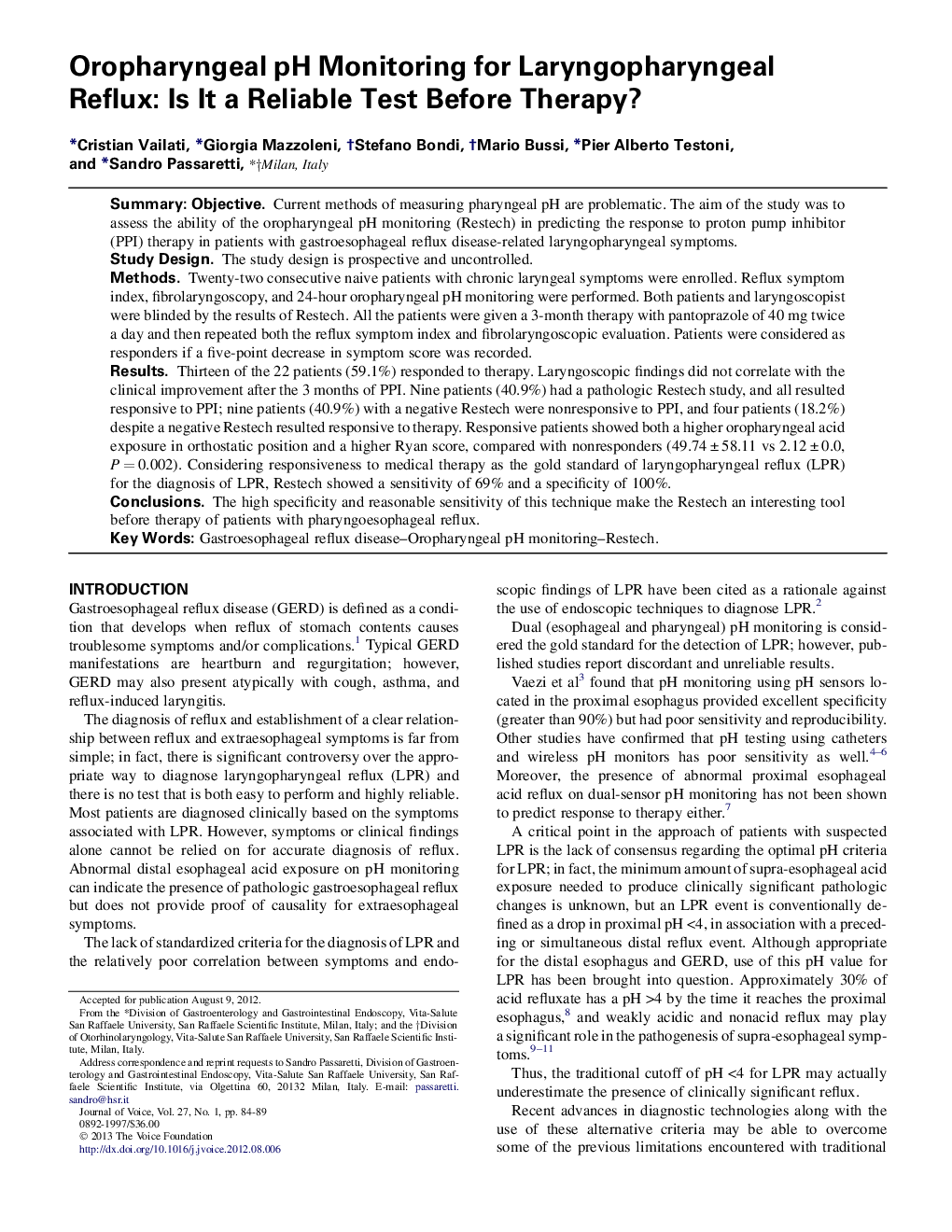| Article ID | Journal | Published Year | Pages | File Type |
|---|---|---|---|---|
| 1101653 | Journal of Voice | 2013 | 6 Pages |
SummaryObjectiveCurrent methods of measuring pharyngeal pH are problematic. The aim of the study was to assess the ability of the oropharyngeal pH monitoring (Restech) in predicting the response to proton pump inhibitor (PPI) therapy in patients with gastroesophageal reflux disease-related laryngopharyngeal symptoms.Study DesignThe study design is prospective and uncontrolled.MethodsTwenty-two consecutive naive patients with chronic laryngeal symptoms were enrolled. Reflux symptom index, fibrolaryngoscopy, and 24-hour oropharyngeal pH monitoring were performed. Both patients and laryngoscopist were blinded by the results of Restech. All the patients were given a 3-month therapy with pantoprazole of 40 mg twice a day and then repeated both the reflux symptom index and fibrolaryngoscopic evaluation. Patients were considered as responders if a five-point decrease in symptom score was recorded.ResultsThirteen of the 22 patients (59.1%) responded to therapy. Laryngoscopic findings did not correlate with the clinical improvement after the 3 months of PPI. Nine patients (40.9%) had a pathologic Restech study, and all resulted responsive to PPI; nine patients (40.9%) with a negative Restech were nonresponsive to PPI, and four patients (18.2%) despite a negative Restech resulted responsive to therapy. Responsive patients showed both a higher oropharyngeal acid exposure in orthostatic position and a higher Ryan score, compared with nonresponders (49.74 ± 58.11 vs 2.12 ± 0.0, P = 0.002). Considering responsiveness to medical therapy as the gold standard of laryngopharyngeal reflux (LPR) for the diagnosis of LPR, Restech showed a sensitivity of 69% and a specificity of 100%.ConclusionsThe high specificity and reasonable sensitivity of this technique make the Restech an interesting tool before therapy of patients with pharyngoesophageal reflux.
